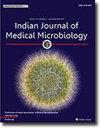A群链球菌疫苗开发:印度公共卫生的当务之急
IF 1.4
4区 医学
Q4 IMMUNOLOGY
引用次数: 0
摘要
背景A族链球菌(GAS)是导致多种疾病的重要病原体,包括风湿性心脏病(RHD)等严重并发症,主要影响印度等中低收入国家。每年受 GAS 感染的人数超过 8 亿,约有 63.9 万人死于风湿性心脏病并发症。尽管取得了重大进展,但开发有效的 GAS 疫苗仍面临着一些挑战,包括 GAS 毒力机制的复杂性、emm 类型的多样性以及缺乏合适的临床前模型。近期的疫苗研究主要集中在基于 M 蛋白和非 M 蛋白的疫苗上,一些候选疫苗显示出了良好的效果。本综述旨在研究 GAS 疫苗开发的历史和当前进展,确定主要挑战,并探讨未来战略,重点关注印度的公共卫生背景。内容 对有关 GAS 及其并发症的现有文献进行了全面综述,重点关注全球和印度的 GAS 感染负担、猩红热复发以及 M1UK 等毒株的出现。研究还回顾了近期的全球倡议,如《开罗协议》和第 71 届世界卫生大会关于流脑的决议,以强调在疫苗开发方面开展国际合作的必要性。持续的全球合作、强化的研究工作和有针对性的公共卫生倡议对于克服 GAS 疫苗开发方面的挑战至关重要。在这一领域的宣传和投资对于减轻全球 GAS 感染及其相关并发症的负担至关重要。本研究旨在提供印度 GAS 分离物的全面基因组数据,以便与全球研究结果进行比较,突出地区差异,并有助于更全面地了解 GAS 的流行病学和致病性。本文章由计算机程序翻译,如有差异,请以英文原文为准。
Group A Streptococcus vaccine Development: An Indian public health imperative
Background
Group A Streptococcus (GAS) is a significant pathogen responsible for a wide range of diseases, including severe complications such as Rheumatic Heart Disease (RHD), which predominantly affect low- and middle-income countries (LMICs) like India. GAS infections impact over 800 million individuals annually, resulting in approximately 639,000 deaths due to RHD complications. Despite significant advancements, developing an effective GAS vaccine has faced several challenges, including the complexity of GAS virulence mechanisms, the diversity of emm types, and the lack of suitable preclinical models. Recent vaccine research has focused on both M protein-based and non-M protein-based vaccines, with several candidates showing promising results. However, current vaccines only address 50 % of the prevalent emm types in India, highlighting the need for further research and development.
Objective
This review aims to examine the historical and current progress in GAS vaccine development, identify key challenges, and explore future strategies, with a focus on the Indian public health context.
Content
A comprehensive review of existing literature on GAS and its complications was conducted, focusing on the global and Indian burden of GAS infections, the resurgence of scarlet fever, and the emergence of virulent strains such as M1UK. The study also reviewed recent global initiatives like the Cairo Accord and the 71st World Health Assembly's resolution on RHD to emphasize the need for international collaboration in vaccine development. Continued global cooperation, intensified research efforts, and targeted public health initiatives are essential for overcoming the challenges in GAS vaccine development. Advocacy and investment in this area are crucial for reducing the global burden of GAS infections and their associated complications. This study aims to provide comprehensive genomic data on GAS isolates from India, enabling comparisons with global findings, highlighting regional differences, and contributing to a more comprehensive understanding of GAS epidemiology and pathogenicity.
求助全文
通过发布文献求助,成功后即可免费获取论文全文。
去求助
来源期刊

Indian Journal of Medical Microbiology
IMMUNOLOGY-
CiteScore
2.20
自引率
0.00%
发文量
154
审稿时长
73 days
期刊介绍:
Manuscripts of high standard in the form of original research, multicentric studies, meta analysis, are accepted. Current reports can be submitted as brief communications. Case reports must include review of current literature, clinical details, outcome and follow up. Letters to the editor must be a comment on or pertain to a manuscript already published in the IJMM or in relation to preliminary communication of a larger study.
Review articles, Special Articles or Guest Editorials are accepted on invitation.
 求助内容:
求助内容: 应助结果提醒方式:
应助结果提醒方式:


